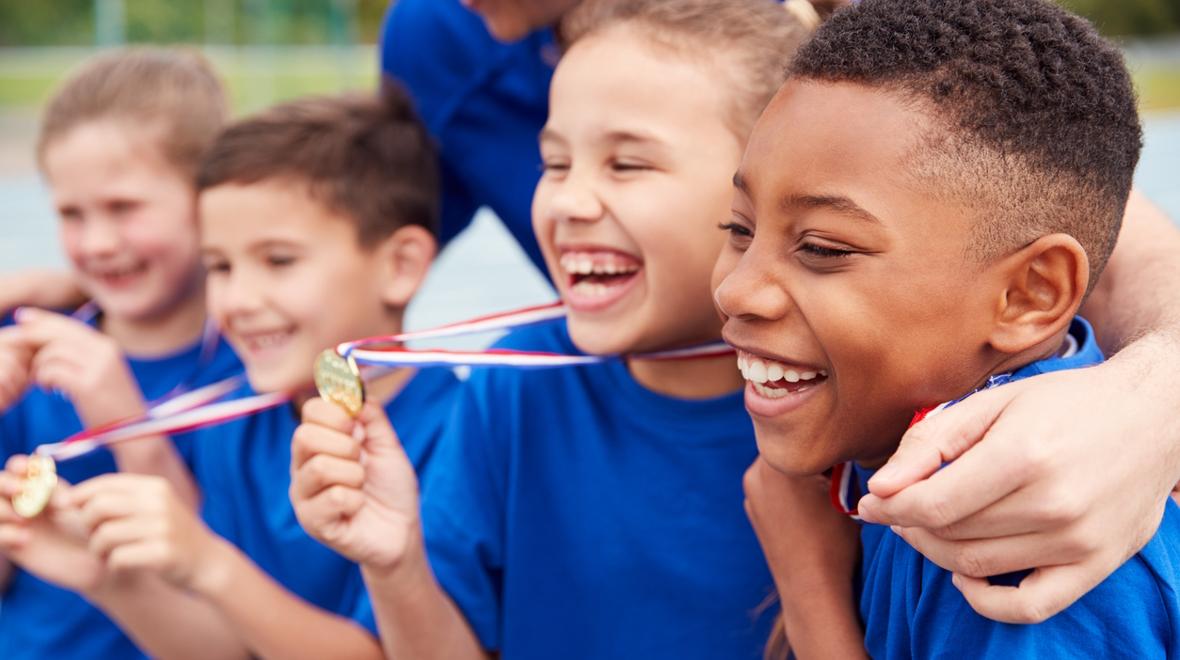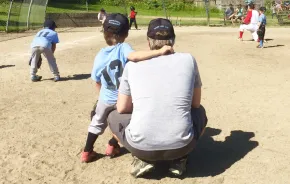
Photo:
Photo: iStock
This summer, thousands of athletes from around the world will compete in the Paris 2024 Olympics, an international competition which has traditionally taken place every four years since 1896. Athletes who participate in the Olympic Games train rigorously to qualify, working closely with coaches and healthcare teams to practice and to keep their body and mind healthy.
This excerpted post was originally published on the Seattle Children’s On the Pulse blog.
The medical staff is a crucial part of any team, from youth sports to world championships. At Seattle Children’s, athletic trainers, sports medicine pediatricians, orthopedic surgeons, physician assistants and sports physical therapists in the Orthopedics and Sports Medicine Program help ensure kids, teens, coaches and parents are well prepared for activities and properly treated for injuries to get athletes back to the activities they love.
Olympic athletes competing at the highest level need the most experienced and dedicated health care providers by their side. That’s where Dr. Brian Krabak and Dr. Monique Burton, of Seattle Children’s, the Odessa Brown Children’s Clinic (OBCC), and the University of Washington (UW), come into play.
Dr. Burton and Dr. Krabak were selected to represent Team USA in the upcoming summer Olympics for USA Track & Field and USA Swimming, respectively. As team physicians providing around-the-clock physical, mental and emotional support for athletes, they are part of a multidisciplinary team which provides care during domestic camp, international camp and the Olympic Games.
On the Pulse spoke with Dr. Burton and Dr. Krabak to gather insight into the top sports medicine questions most commonly asked by parents and caregivers.
How can I help prevent injuries when my child is playing sports? What tips can you share?
Preventing injuries in youth sports involves a combination of proper preparation, supervision and education. Firstly, ensure your child receives appropriate coaching and training in their chosen sport. Proper technique and conditioning can significantly reduce the risk of injury.
Encourage your child to warm up before practice or games with stretching and light exercises to prepare their muscles and joints. Additionally, make sure they have the right protective gear for their sport, such as helmets, pads, or mouthguards, and that it fits correctly.
It is also important to have adequate nutrition and sleep. A well-balanced diet will help provide fuel for physical activity and aid in recovery. Sleep is essential to allow the body time to recover and to be prepared for the next day’s activities.
Supervision is crucial, especially for younger children. Make sure there are qualified adults present during practices and games who can respond to injuries and enforce safety rules. Ensure the instruction is age appropriate and coaches have proper training and credentials.
Educate your child about the importance of listening to their body and speaking up if they feel pain or discomfort. Finally, encourage them to take breaks when needed and avoid overtraining, as fatigue can increase the risk of injury.
How do I know which sport my child should play? Are there some sports that are safer choices than others?
Choosing the right sport for your child depends on their interests, abilities, and physical attributes. Consider their personality and preferences when exploring different options.
Some children may thrive in team sports like soccer or basketball, while others may prefer individual activities such as swimming or track and field. It's essential to involve your child in the decision-making process and recommend they sample different sports and allow them to see what they enjoy and excel in.
When considering safety, some sports inherently carry a higher risk of injury than others. Contact sports like football, rugby, and hockey pose a greater risk of concussions and orthopedic injuries compared to non-contact sports like tennis or swimming. However, with proper coaching, equipment, and supervision, these risks can be mitigated.
Ultimately, the right sport for your child is one that they are passionate about and will engage in responsibly.
What early signs should I look out for to know if my child is staying healthy while playing sports?
It's essential to monitor your child's physical and emotional well-being while they participate in sports. Look out for signs of burnout, such as decreased interest in activities they used to enjoy, irritability, or fatigue.
Keep an eye on their mood and behavior, as sports-related stress can sometimes manifest as anxiety or depression. Encourage open communication with your child and let them know it's okay to express their feelings or concerns about their sport.
Physical signs of overtraining or poor health include persistent fatigue, frequent injuries, or changes in appetite or sleep patterns. If you notice any of these warning signs, it's crucial to address them promptly by adjusting training intensity, seeking medical advice, or providing additional support and encouragement to your child.
If is important to take early action on complaints of pain as well. It is not uncommon to have some soreness in their body as they build strength and flexibility in their sport. If the discomfort is not resolving quickly and/or isolates to one place, it is important to seek medical care to help address the issue early to help make the recovery process as efficient as possible.
Besides physicals, is there anything else I should be doing to ensure my child is enjoying youth sports safely?
Besides regular physical exams, there are several other ways to ensure your child's safety and enjoyment in youth sports.
Nutrition plays a vital role in supporting their performance and recovery, so provide balanced meals and snacks to fuel their activities. Emphasize hydration, especially during hot weather or intense training sessions, to prevent dehydration and heat-related illnesses.
Ensuring your child has the proper gear for their sport is essential for injury prevention. Check equipment regularly for wear and tear, and replace anything that is damaged or no longer fits correctly. Additionally, prioritize rest and recovery by scheduling regular breaks from training and encouraging adequate sleep each night.
Finally, promote a positive sports culture that prioritizes fun, teamwork and sportsmanship over winning at all costs. Encourage your child to set realistic goals and celebrate their achievements, whether big or small.
By fostering a supportive and healthy environment, you can help your child develop a lifelong love of sports while minimizing the risk of injury.
Learn more about Seattle Children’s Orthopedics and Sports Medicine Program.
Resources |











